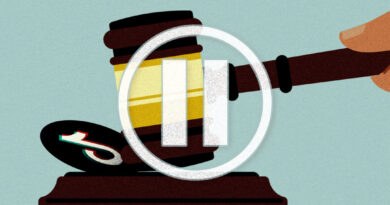Over 1,500 Individuals Charged in Connection with January 6th Events, DOJ Reports on 4th Anniversary
President-elect Donald Trump has committed to granting pardons to non-violent offenders, indicating that these will be considered on a case-by-case basis.
The Department of Justice (DOJ) reports that over 1,500 individuals have faced charges, with around 1,009 entering guilty pleas related to the events of January 6, 2021.
The U.S. Attorney for the District of Columbia provided a four-year update, detailing how the DOJ has tackled and resolved numerous charges.
“Four years ago today, police officers were viciously assaulted while courageously safeguarding the United States Capitol,” he stated. “They endured punches, tackles, tasers, and assaults with chemical agents that harmed their eyes and skin.”
Roughly 180 individuals were charged for entering a restricted area with a dangerous or deadly weapon, while “approximately 174 defendants” faced charges for using such weapons. This figure includes defendants charged with causing significant bodily injury to an officer.
According to the DOJ, around 1,100 defendants have had their cases fully adjudicated, culminating in sentences, while 221 individuals were found guilty during contested trials held in Washington, including 10 convicted of seditious conspiracy.
Trump and his team have suggested that he will pardon at least some of the defendants. In December, Time magazine inquired of Trump whether he would issue blanket pardons for all defendants.
“I will handle it on a case-by-case basis, and for those who were non-violent, I believe they have been excessively punished,” he remarked. “The answer is yes, I will look into it, particularly for those who truly went overboard.”
He mentioned that the pardoning process would “commence within the first hour I am in office.”
“A vast majority do not belong in jail and have suffered greatly,” Trump expressed.
To date, 667 individuals have received sentences of incarceration.
The controversies surrounding January 6 reached the Supreme Court in April 2024 when justices heard arguments from defendants claiming the DOJ had misapplied an obstruction statute related to their actions.
The DOJ stated on January 6, 2025, that any individual charged under Section 1512 also faced other charges and would continue to be subject to criminal liability even if the Section 1512 charge was dismissed.
Of the approximate 259 individuals charged under that law, around 126 still had pending cases in D.C. District Court when the Supreme Court’s decision in Fischer was made, according to the DOJ.
The DOJ chose to drop the charge for roughly 119 of these defendants and did not oppose the vacating or dismissal of the charge in about 65 of the cases that were resolved by the time the Fischer decision was reached.
Approximately 68 individuals faced charges of theft of government property, and around 91 were charged with property destruction, all of whom were also accused of trespassing or disorderly conduct. Approximately 18 defendants were charged with seditious conspiracy.
The U.S. Court of Appeals for the D.C. Circuit ruled that the DOJ could invoke a trespassing law without needing to demonstrate that a January 6 defendant was aware that former Vice President Mike Pence’s presence on Capitol grounds was the reason for the restriction of that area.





